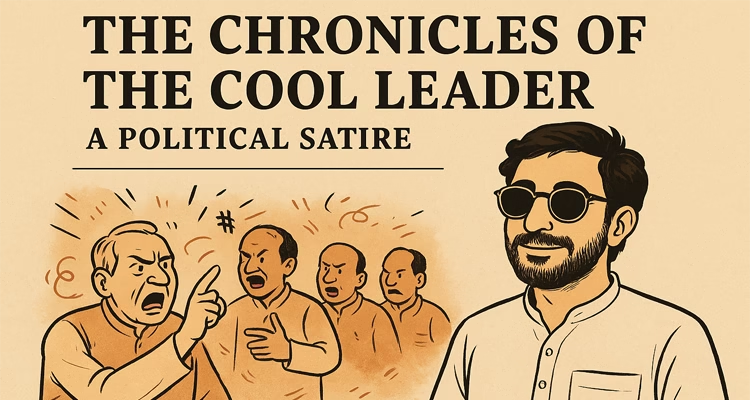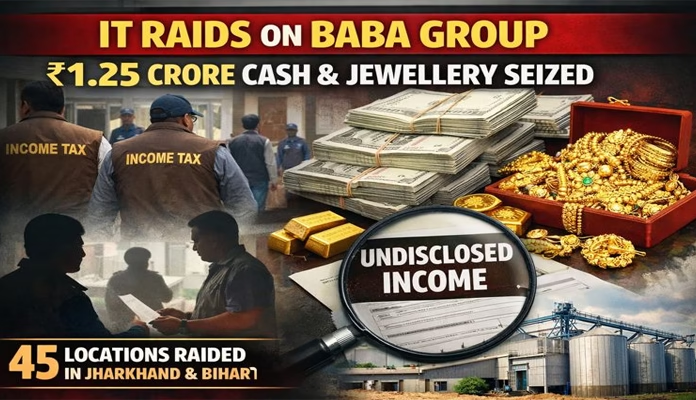 by Dr. Piyush Raja
by Dr. Piyush Raja
In the grand circus of Indian politics—where furrowed brows pass for wisdom and the length of a beard signals authority—there emerged a leader who changed the script. He wasn’t burdened by policy papers, economic roadmaps, or the heavy files of governance. No, he carried with him something far more potent: a chilled-out vibe.
Picture him in the midst of fiery debates. While rivals sweated through stiff kurtas, our cool leader strolled in as if fresh from a café. His trademark style? A long, thoughtful pause. Not because he was untangling the complexities of governance, but because somewhere between thought and speech, he had misplaced the question. Forgetfulness? Hardly. It was cultivated mystique.
He possessed a unique gift: elevating ordinary remarks into philosophical thunderclaps. “Poverty is a state of mind,” he once declared, collapsing centuries of economic struggle into the neatness of a fortune cookie. Why summon economists when you could sound spiritual, profound, and puzzling all at once?
His speeches soon achieved cult status—not for clarity, but for their jazz-like unpredictability. One moment he was on agriculture; the next, he was explaining how his cotton shirt spiritually bound him to farmers. The audience applauded—half confused, half relieved—sensing they had brushed against wisdom, even if they couldn’t quite name it.
During crises, while seasoned politicians plotted strategies in war rooms, our cool leader floated serenely above it all. His philosophy was Zen-like: “We must think about thinking about what we’re thinking.” Leadership by ellipsis. Governance as abstraction. Politics as poetry. Criticism never touched him; serenity was his shield.
Was this naivety or brilliance? Critics dismissed him as inexperienced, but his loyalists hailed him as a philosopher-king—proof that not knowing was, in its own way, knowing. Why wrestle with policy when one could rise above it with a mild smile and a shrug?
Relatability was his real superpower. He didn’t chase memes or slang—he simply was. His dazed expressions in parliament mirrored the public’s own bafflement. He was, quite literally, the people’s blank slate.
Ask him about economics and he would say, “We need to help people.” Push harder, and he clarified, “All people. Because people are people.” Profundity so simple, it reduced think tanks to rubble.
Even his timing was perfect—not through punctuality, but by making every moment feel like it had been waiting for him all along. Elections came and went, but he floated through them like a monk immune to numbers.
His political playbook was minimalism distilled: show up, speak from the heart (even if the heart was on holiday), and let sincerity outshine substance. Politics stripped to its bare bones—emotion without paperwork.
In the end, the cool leader offered a revelation. Politics didn’t always need to be buried under policies or reforms. Sometimes, it was enough to look deeply lost in thought—and own that lostness with flair.
His greatest contribution wasn’t a policy, a scheme, or a reform. It was authenticity: raw, unpolished, and occasionally resembling a student banking on charm rather than preparation. And perhaps, in its own way, that was the coolest leadership of all.





